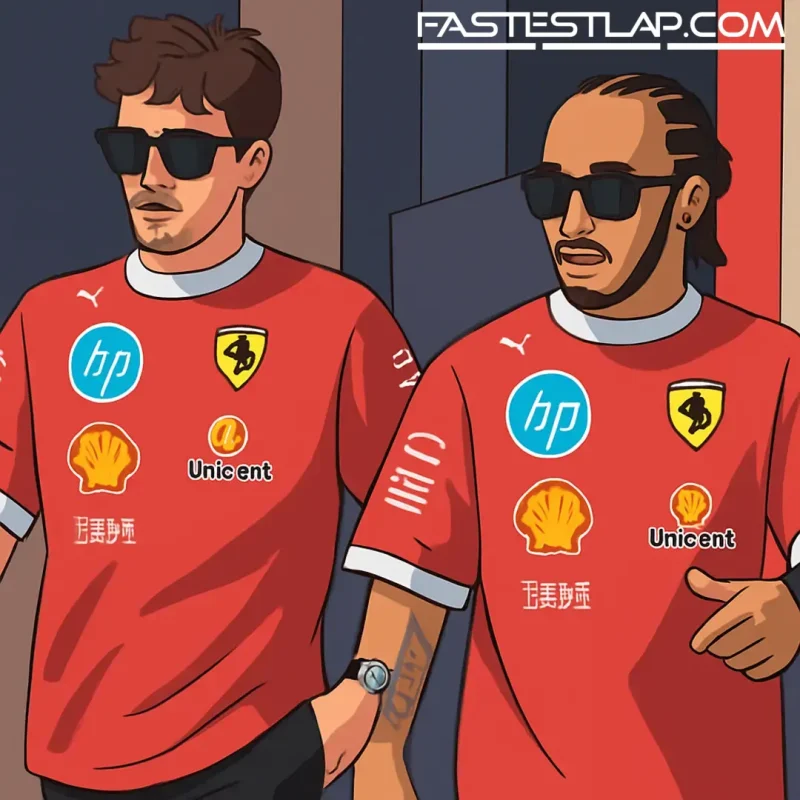Ferrari’s Baku muddle wasn’t about eighth place. It was about optics, execution and a team that can’t afford to leak even the small points right now.
On a scruffy Azerbaijan Grand Prix weekend, Ferrari qualified with Charles Leclerc 10th and Lewis Hamilton 12th, then ground their way to P8 and P9 at the flag. The plan late on was clear enough: Ferrari swapped their cars to let Hamilton, on fresher tyres, attack the pack ahead. When that came to nothing, the red pit wall asked for the places to be reversed before the line. Hamilton slowed, moved off the racing line and checked the mirrors, but he still beat Leclerc to the stripe by four tenths.
Leclerc’s radio summed up the mood. He called the whole thing “stupid” and “not fair”, later hinting that the internal rules weren’t respected. He also downplayed the stakes—eighth or ninth on a rough weekend doesn’t change the world—but the message was there: if Ferrari are fighting for bigger results, they can’t trip over each other.
Guenther Steiner didn’t bother with the sugar-coating. The former Haas boss, speaking on the Red Flags podcast, handed Ferrari his tongue-in-cheek “wanker” award for Baku and took aim at both team and driver.
“Eighth and ninth, beaten by Racing Bulls, beaten by Williams,” Steiner said. “The mess not to let Charles by at the end—Lewis falling asleep to let him by because he was focused on something else. They need to wake up. If they want to become second in a championship like this, it’s not going to happen [with] results like Baku.”
Steiner’s point cuts to Ferrari’s 2025 reality. The fight for second has tightened. After Baku, Mercedes edged four points ahead of Ferrari in the standings, with Red Bull back in the conversation thanks to Max Verstappen’s back-to-back wins and Yuki Tsunoda banking sixth in Baku. Mercedes have already won races this year; Red Bull have, too. Ferrari, as Steiner noted, haven’t.
That’s a far cry from the momentum Ferrari carried through the second half of last season and the early flashes this year. They had built a profile of cleaner weekends, sharper strategy, fewer own goals. Baku chipped away at that perception with one of those classic Ferrari grey-zone moments: understandable in intent, untidy in execution, and expensive in the impression it leaves.
Was Baku the day Ferrari lost P2 for good? Steiner isn’t willing to go that far, and he’s right not to. “Any of the three,” he said of Mercedes, Ferrari and Red Bull. “They are so close together. It’s too early to call it. If Mercedes has got a good race and they win a race and Kimi [Antonelli] makes some points, they can be in front.” That’s the point: it’s volatile. And volatility rewards teams that don’t hand away crumbs.
Inside the Ferrari garage, you suspect this becomes a line-in-the-sand moment. Team orders themselves aren’t the problem—every top team uses them. It’s the choreography. The request came late. Hamilton did slow, but there was hesitation, and hesitation at 300 km/h tends to end the debate. For drivers, especially one of Hamilton’s stature, the instinct to hold track position until it’s absolutely clear-cut is hardwired. For Leclerc, this touched an old Ferrari nerve: procedures have to be crystal.
The calendar isn’t going to wait for them. Singapore is next, and it’s one of the year’s sharper measuring sticks: traction, tyre life, driver confidence. It’s also a place Verstappen has never won, that rare outlier in his portfolio. Steiner went further, suggesting Red Bull will “struggle” and that Verstappen won’t win “a lot more races this year.” Maybe that’s bold, maybe it’s bait—but it underlines how open this scrap for second really is.
Ferrari don’t need a revolution to steady it. They need clean Saturdays, confident pit wall calls and—when they do shuffle cars—the kind of
binary clarity that leaves no room for interpretation on the run to the line. They need Hamilton and Leclerc pointing their energy forward, not sideways. They need, in Steiner’s words, the wake-up call.
Because one point here, two points there, and suddenly that four-point gap to Mercedes becomes a habit. And habits decide whether you’re second, third, or watching both a silver car and a blue one waltz past you in the constructors’ standings.
Baku won’t define Ferrari’s season. But if they let it rhyme, it just might.




